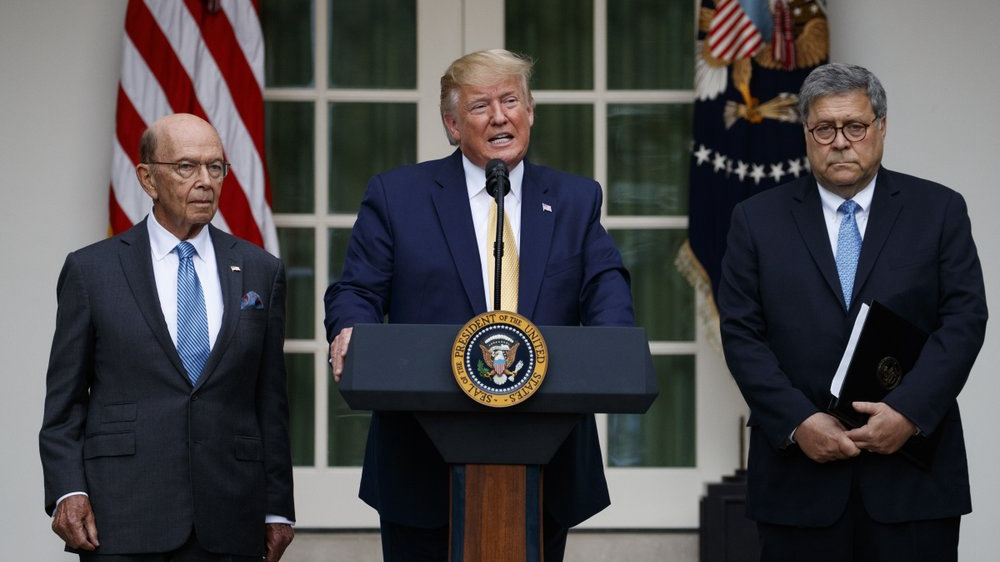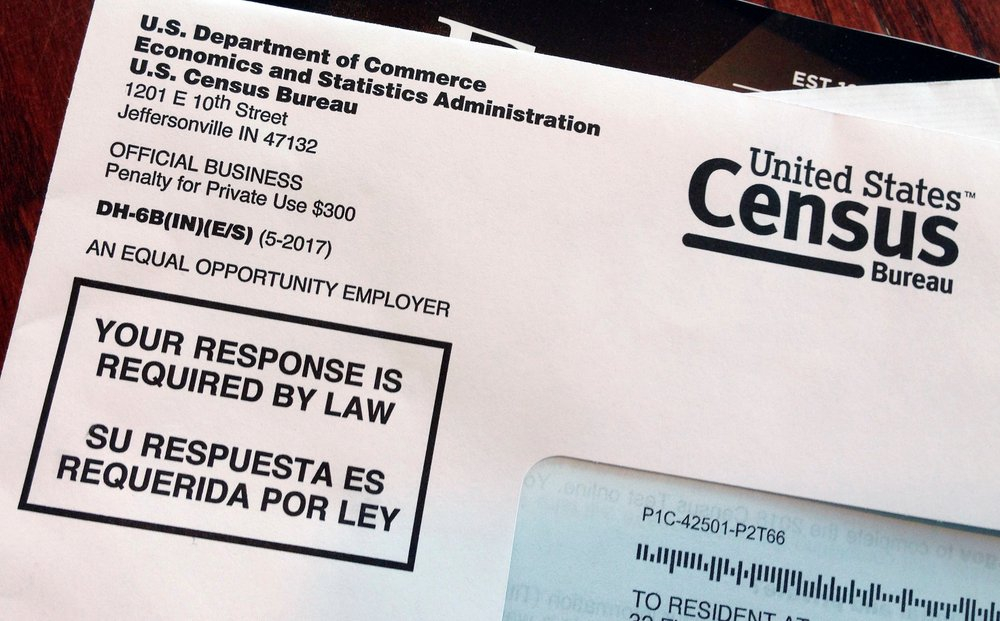
U.S. President Donald Trump abandoned his controversial bid on Thursday to add a question on citizenship to the 2020 census, but insisted he was not giving up his fight to count how many non-citizens are in the country and ordered government agencies to mine their databases.
Trump's plan to add the question to the census hit a roadblock two weeks ago when the U.S. Supreme Court ruled against his administration, which had said new data on citizenship would help to better enforce the Voting Rights Act, which protects minority rights.
The court ruled, in considering the litigation by challengers, that the rationale was "contrived." Critics of the effort said asking about citizenship in the census would discriminate against racial minorities and was aimed at giving Republicans an unfair advantage in elections by lowering the number of responses from people in areas more likely to vote Democratic.

President Donald Trump, joined by Commerce Secretary Wilbur Ross(L) and Attorney General William Barr, speaks during an event about the census in the Rose Garden at the White House in Washington, D.C., July 11, 2019. /AP Photo
As a Republican, Trump and his supporters say it makes sense to know how many non-citizens are living in the country. And he vowed Thursday that he would be signing an executive order directing every federal department and agency to provide the Commerce Department with all records pertaining to the number of citizens and non-citizens in the country.
"We are not backing down on our effort to determine the citizenship status of the United States population," Trump said. He believes that getting data from the government will allow the U.S. to have a more complete count of citizens than through asking the single question alone.
It's unclear what Trump intends to do with the citizenship information. Federal law prohibits the use of census information to identify individuals, though that restriction has been breached in the past.
U.S. Attorney General William Barr said in a statement the information will be useful for countless purposes.
At one point, Trump suggested it could help states that "may want to draw state and local legislative districts based upon the voter-eligible population." That would mark a change from how districts are drawn currently, based on the entire population, and could increase Republican political power.

The file photo shows an envelope containing a 2018 census letter mailed to a U.S. resident as part of the nation's only test run of the 2020 Census, March 23, 2018. /AP Photo
Trump's attempt was challenged by civil rights groups which would closely see the potential use of Trump administration's collection of data.
"We will vigorously challenge any attempt to leverage census data for unconstitutional redistricting methods," said Michael Waldman, president of the Brennan Center for Justice, a law and policy institute at the NYU School of Law.
Waldman said his group would also challenge "any administration move to violate the clear and strong rules protecting the privacy of everyone's responses, including the rules barring the use of personal census data to conduct law or immigration enforcement activities."
The Census is also used to distribute some 800 billion U.S. dollars in federal services, including public schools, Medicaid benefits, law enforcement and highway repairs.
(With input from AP, Reuters)

Copyright © 2018 CGTN. Beijing ICP prepared NO.16065310-3
Copyright © 2018 CGTN. Beijing ICP prepared NO.16065310-3